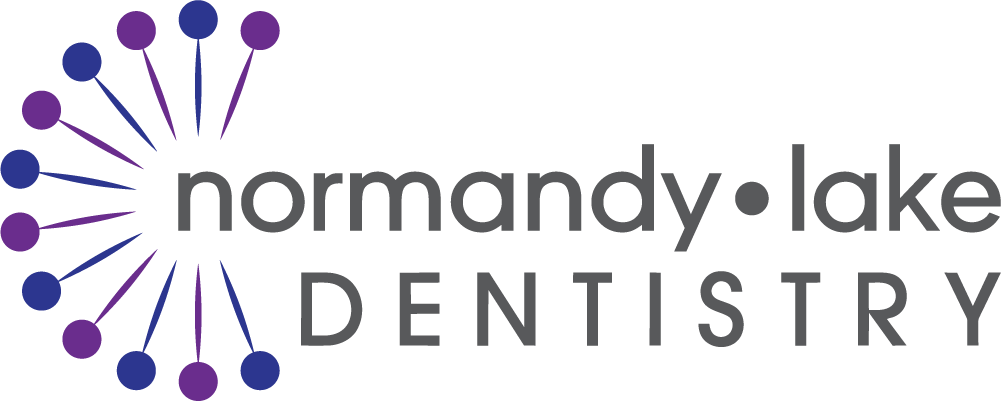Improving Your Smile
Your smile is one of the first things people notice, and if you’re not confident in yours, it can be a cause for low self esteem and insecurities. That’s where cosmetic dentists come in. Cosmetic dentists are here to help you be confident in your teeth and smile.
There are lots of things cosmetics dentists can do to make you love your smile. That’s why we’ve compiled a list of just some of the reasons why you should visit a cosmetic dentist.
Straightening Teeth
Crooked or misaligned teeth are really common for most people, but not everyone had braces in middle school. Now you might be an adult and don’t want to go the traditional teeth straightening route. That’s where your cosmetic dentist comes in.
We can provide you with different methods of straightening your teeth, including but not limited to, clear braces, Invisalign, and veneers. These options give you a way to straighten your teeth without the pain of braces and the hassle of going to an orthodontist.
Replacing Missing Teeth
Got some missing teeth? No worries! Cosmetic dentists have a variety of ways to fill gaps and missing teeth. These include crowns, implants, dentures, bridges and more. No matter how you lost your teeth, we can help get your smile complete again.
Whitening Your Teeth
Everyone wants that million dollar smile that sparkles when you show it. Getting whiter teeth can help you have brighter teeth. Having your teeth whitened by a professional is safer and more effective than doing it yourself at home. It can also last longer.
Whitening your teeth is one of the more popular ways to improve your smile and dentists offer a wide variety of ways to do it. There are several methods your dentist can try, and they can even provide you with take home kits. Talk with us to find out what method is best for you!
Tooth Reshaping
Some people don’t love the shape of their teeth, whether they are pointy or oddly shaped or whatever the reason may be. Reshaping your teeth can help get you that straight, even tooth look. Most people opt for the veneer route if they want to change the shape of their teeth, but talk with us and we can decide the best option for you.
No matter if it’s a small change or a big change, cosmetic dentists can help give you confidence in your smile again. Call one of our locations to set up an appointment to talk with our dentists about what we can do to get you loving your smile again.
Invisalign & Other Clear AlignersThe Different Types of Cosmetic Dentistry
What’s the first thing you see when meeting someone new? Oftentimes, it’s their smile. And if someone doesn’t have a perfect smile, it can be a source of insecurity for them. Luckily, there are ways to help you fall in love with your teeth.
Cosmetic dentistry is dentistry aimed at creating a positive change to your teeth and your smile. Whether your teeth are chipped, stained, misaligned, or worn, cosmetic dentistry can improve your smile and your confidence. Here are just a few ways cosmetic dentistry can help.
1. Teeth Whitening
Whitening your teeth is one of the most common and quickest ways to change your smile. This is the perfect solution for someone who doesn’t need anything more than a bit of brightening for their teeth or someone who isn’t quite ready for a huge commitment.
Fortunately, teeth whitening can be done in a dentist’s office, or it can be done at home. However, it’s wise to get the bleach from your dentist to make sure you’re getting the safest and best product.
2. Dental Veneers
Veneers, the gold standard for cosmetic dental procedures, are thin, custom made shells of tooth colored porcelain that cover the front surface of the teeth. About a half- millimeter of enamel from the tooth is gently shaved and then an impression is taken. Then, the impression is sent to a dental lab for custom veneers.
While you’re waiting for your permanent veneers, you’ll have temporary ones. Once you get your permanent set, they’ll be cemented to the front of the teeth and you can change the size, color, shape or length.
3. Dental Bonding
Dental bonding is a great option for people who have deeply stained or chipped teeth. During this procedure, a tooth- colored, putty- like resin is applied to the tooth and hardened with an ultraviolet or laser light, bonding the material to the tooth. Your dentist can then trim, shape and polish it.
4. Enamel Abrasion
This procedure is a way to remove discoloration. The procedure uses a fine pumice in a micro-abrasion machine to remove surface stains. While this process doesn’t work for stains inside the tooth or intrinsic stains, it works wonders to remove stains caused by things like tobacco, wine, coffee and berries.
5. Invisalign® Braces
These are perfect for not only kids, but adults as well because no one can tell you’re wearing them! They’ll help you get the perfect smile that you’ve always wanted.
While they’re great for straightening teeth, they also help with chronic pain caused by misalignment, such as headaches.
Whatever you want to do to improve your teeth, we’ve got you covered. We want all of our patients to be confident in their smiles. If you have any questions about different procedures used for cosmetic dentistry, please reach out to one of our three convenient locations across Florida. We’ll get you set up with an appointment and our team will get you the right process for your needs.
How Does a Cosmetic Dentist Fix Your Teeth?Introduction to Different Types of Dentures
Dentures are a normal, everyday part of life for many people all over the world. In fact, we know they’ve been in use for thousands of years! The oldest record of denture use dates back to 700 BC in Northern Italy, and they were used throughout the years of the roman empire. So, if we’ve talked with you about dentures or you suspect you will need them, know that you’re not alone! Men and women have been wearing dentures through some of the most momentous events in history.
The cosmetic benefits of dentures are obvious, but they also can help people eat and speak, which is why they’ve been so popular for so much of the world’s history.
Did you know there are many different types of dentures? No matter how you lost your teeth, there’s a set of dentures that can help you look and feel normal again.
Here are some examples of the different types of dentures you and your dentist might decide to use, depending on your individual situation:
• Full Dentures
When you hear the word “dentures”, you probably think of these. Full dentures are used to help a patient who’s lost most or all of their teeth. This type of denture needs to be custom-molded to your gums, so we may need to remove existing teeth if some are still left in place in your mouth. After your dentures are properly fitted, an adhesive is used to hold them in place over the course of each day. You’ll take them out and clean them every night.
• Partial Dentures
Not every case of missing teeth is extreme enough to require a whole new set of dentures. When only certain portions of your teeth are missing, we may evaluate it together and consider a set of partial dentures. These not only help your teeth look natural, but also keep your remaining teeth from slowly drifting out of place and becoming crooked. Partial dentures are made of (1) a pink artificial root that matches the color of your gums, (2) false teeth to replace the missing ones, and (3) sometimes a clip or wire to hold everything in place.
• Implant Supported Dentures
If you want your new smile to have a more solid foundation, you might consider implant-supported dentures. This style of denture includes four implants — titanium posts that fuse to your jawbone — which allow you to snap the dentures in and easily take them out for cleaning. The process of fitting and preparing implant supported dentures is more involved than fitting a set of traditional dentures, but the result is very convenient. This type of denture does not require the use of adhesive.
Our Goal is Your Beautiful Smile
We can help you find the right type of dentures for you, no matter what your situation. Modern dentures are more comfortable, convenient and realistic than ever before — the result of more than two thousand years of innovation! If you believe dentures might be a right fit for you, please contact one of our offices. We’ll be happy to talk with you about the different types of dentures and what the fitting will entail, so we can get your smile to look the way you want it to.
Dentures: To Be or Not To BeInvisalign® Systems and Other Clear Aligners: A Path to Better-Looking Teeth
Braces can feel like a bit of a contradiction. You want a clean, straight smile, but you first have to wear a highly visible device on your teeth for months on end. You want a well-aligned bite, but for a while braces make some day-to-day tasks, such as brushing teeth and eating some foods, more difficult.
Fortunately, for those who want to show off their pretty pearly whites as they go AND show off the results of their realignment as soon as possible, one option is clear plastic removable aligners such as Invisalign® aligner systems.
The Benefits of Clear Aligners
Clear aligners, as their name suggests, are clear plastic devices intended to straighten your teeth over time. They are nearly undetectable by observers. Not only are they more difficult to see (getting you closer to being able to show off that perfect smile), but they can be taken out temporarily when needed, allowing you to brush your teeth or eat without distraction.
How to Pay for Clear Aligners
Depending on the degree of work your teeth need, an Invisalign® clear aligner treatment can cost between $3,000 and $7,000. According to the Invisalign® website, your insurance may be able to pay as much as $3,000 of the cost. For the amount your insurance doesn’t cover, you have some options.
Many dentists offer payment plans, which allows you to split a large bill into smaller payments over time. This makes payment much more manageable for some people and can be useful in emergency situations when you don’t have time to save money for the treatment before you begin.
Of course, if you can save the money ahead of time, that’s probably the better option. If you’re planning to save up for an Invisalign® clear aligner treatment or something similar, you may want to consider opening a Flexible Spending Account (FSA) or Health Savings Account (HSA). Accounts such as these allow you to take a certain amount of money out of your paycheck, pretax, to pay for some expenses—including, in some cases, clear aligners. The types of accounts you’re allowed to open and the amount of money you can put into them will vary depending on your situation, so talk to your bank or another financial professional about your options.
The Clear Aligner Fitting Process
For most clear aligners, including Invisalign® systems, your dentist will take a mold of your teeth and send it in. From there, orthodontic experts will determine the difference in positions between where your teeth are and where you want them to be and will create several stages of aligners to gradually move your teeth into the desired position. You’ll have to wear the aligners most of the time—about 22 hours a day. At certain points in the process as your teeth change position, you’ll move on to the next device, switching them out until your teeth are right where you want them to be.
Alternatively, there are kits you can order to take a mold of your teeth at home. This is an overall less expensive process, but you aren’t likely to achieve the same results and you lose the benefit of your dentist’s expertise. Clear aligners may not be the best solution for you, so it’s best to consult your dentist beforehand even if you decide to go this route.
For those who can use them, clear aligners such as Invisalign® systems can be the least intrusive solution for straightening teeth. It’s nice not to have to worry about the looks and inconveniences of traditional braces! The initial cost of clear aligners may seem daunting, but options are available to help pay for them. If you have any questions about clear aligners or other methods of straightening your teeth, please contact one of our offices. We’ll be happy to walk you through your options and help you find the best possible solution for your smile.
The Pros and Cons of Cosmetic DentistryTaking Care of Your Teeth as You Age
As our bodies age, we know we’ll have lots of very natural physical challenges, and that includes changes in our teeth and mouth. Those changes can be unsettling – even frightening – and day-to-day dental hygiene can become difficult. But if these new challenges are met head-on, there’s no reason seniors can’t keep gums and teeth healthy well into their later years!
As you grow older, make it a point to stay aware of the new dental challenges you face and you’ll be much happier with your dental health – and with life in general!
Day-to-Day Challenges of Senior Dental Hygiene
Many common day-to-day changes seniors face in caring for their teeth fall into two categories: physical difficulties and medication side effects.
General physical lifestyle changes you experience as a senior may seem as though they are unrelated to dental care, but they can have a huge impact on your teeth. For example, if you develop arthritis, it may be more difficult for you to properly brush your teeth every day. If so, you may find it easier to use an electric toothbrush, which requires less precision and force. Similarly, you should consider using a water flosser if flossing has become difficult.
The side effects of some medications many people begin taking as seniors can cause dry mouth. This innocent-sounding condition can have serious consequences for dental health over time, because saliva is a major part of how your body keeps your teeth clean. A dry mouth is a perfect environment for germs to grow. You can manage this challenge by increasing your fluid intake and chewing sugarless gum to stimulate saliva production.
Look and Feel Natural with Dentures
Many people, despite their best efforts and good dental habits over a lifetime, will find they have significant damage to their teeth as they age and may want to consider dentures to help them with eating and speaking.
Dentures come in a variety of forms, but all of them are designed to make your mouth look and feel normal after tooth loss. If you only have a few good teeth left, you may decide to pull them and go with full dentures. If you’ve only lost a tooth or two, you may not need a full set of dentures. Partial dentures can give you strong, natural-looking replacements that blend well with your other teeth. For convenience, you might consider implants with click-on dentures that don’t require adhesives.
Make Senior Dental Care a Priority!
Dental hygiene is important at any age, but the older you get the more important it is to practice good dental hygiene to keep your teeth and mouth healthy. Whether you’ve made it to a ripe old age with a full set of healthy teeth or you’ve needed a little bit of work along the way, your dentist can work with you as your partner to preserve your shining smile.
If you have any questions at all about changes to your dental care routine as you get older, or if you want to discuss possible dental implants or dentures, contact us at one of our locations. We’ll work with you to keep you on the road to healthy senior teeth!
Oral Health Tips for Seniors

















